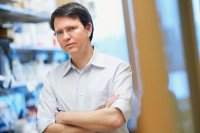
At Work: Cancer Biologist Hans-Guido Wendel
German-born cancer biologist Hans-Guido Wendel is taking advantage of transformative advances in genomics technology to understand key genetic abnormalities in leukemia and lymphoma.
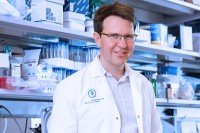
Tree-Derived Cancer Drug Shows Promise in Treating COVID-19 Virus
Originally explored as a cancer drug, the tree-derived chemical is now being mined for its antiviral properties.
In the Lab
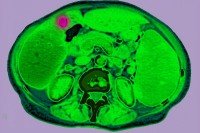
A Metabolic Enzyme Drives Lymphoma and Is a Potential Drug Target
New research from Sloan Kettering Institute investigators pinpoints altered cell metabolism as a cause of B cell lymphoma.
Finding
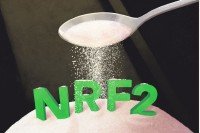
Sugar Directly Controls a Cancer-Causing Protein, Scientists Find
The discovery suggests a potential new treatment approach for certain cancers.
In the Lab

When Loss Is a Gain: New Tumor Suppressor Gene Identified in Follicular Lymphoma
The reason certain patients with follicular lymphoma do worse than others may come down to a missing gene.
In the Lab
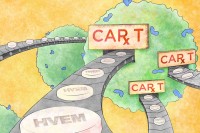
New Immunotherapy Approach Turns Cells into “Micro-Pharmacies”
A new immunotherapy approach involves engineering CAR T cells to produce proteins that treat lymphoma.
In the Lab
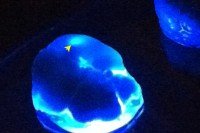
Genetic “Kill Switch” Could Make Cell Therapies Safer
Researchers have engineered a gene into therapeutic cells that allows them to turn off tumor growth if some of the cells become cancerous.
In the Lab

Compound from Tropical Plant Targets Key Cancer-Causing Genes
Memorial Sloan Kettering researchers have found a naturally occurring compound that can destroy cancer cells in mice by targeting <em>MYC</em>, a cancer-causing gene that has remained elusive until now.
DNA Pioneer Takes Aim at "Cancer Establishments"
Cancer biologists Mark Ptashne, Robert Benezra, and Hans-Guido Wendel commented on the promise and challenges of new treatments for cancer....
Profile
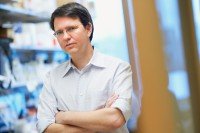
Genetic Causes of Blood Cancers Explored
German-born cancer biologist Hans-Guido Wendel is taking advantage of transformative advances in genomics technology to understand key genetic abnormalities in leukemia and lymphoma.
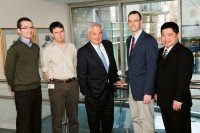
Memorial Sloan Kettering Names First Gerstner Fund Recipients
Memorial Sloan Kettering has announced the creation of the Louis V. Gerstner, Jr. Young Investigators Fund and has named the fund's first four recipients.










